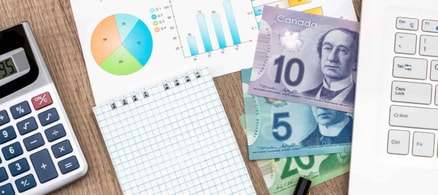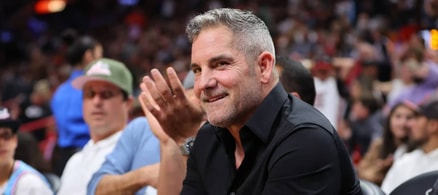1. Not having a strategy
Do you know what you want to do when you retire and how much income that’s going to take? Someone who’s planning a jet-setting lifestyle in retirement is likely going to need more money than a homebody planning to volunteer locally.
Having a plan for what you’ll need the funds for will help inform the investing strategy you take in your investment account.
“When you retire, every day is like the weekend,” says Karram. “And when you talk to retirees, they're telling us every single time: ‘I wish I had as much as I possibly can; I wish I had more than what I was earning before I retired.’”
As Stephanie Douglas, a certified financial planner and partner and portfolio manager with Harris Douglas Asset Management in Toronto, points out, that strategy should also look different at different life stages.
“I commonly see young people with 100% cash in their RRSP,” says Douglas. “They don't plan to take this money out for another 20 to 30 years and they could take on more risk … but it's sitting in cash not even keeping up with inflation.”
Finding the right balance for your time horizon (when you plan to retire), your risk tolerance and your goals is crucial to ensuring you won’t be worrying about money when you want to enjoy that seven-day weekend lifestyle.
A better online investing experience
Easy to use and powerful, Qtrade's online trading platform puts you in full control with tools and resources that help you make well-informed decisions.
Invest Now2. Forgetting what an RRSP is really for
The purpose of RRSPs is to save money for retirement. Withdrawing funds before you hit that milestone — unless it’s to buy your first home or to pay for tuition — means it’ll be taxed.
When you make a withdrawal, your financial institution immediately withholds a set amount of tax:
- 10% (5% in Quebec) on sums of $5,000 and less
- 20% (10% in Quebec) on $5,000 to $15,000
- 30% (15% in Quebec) on over $15,000
Quebec residents will also face an additional provincial tax on their withdrawals.
But the amount you take out of your RRSP will also be included in your annual income for tax purposes. That means if that money bumps you up into a new tax bracket or the withholding tax isn’t enough to account for what you owe, you could end up with a bill come tax time.
Beyond taxes, once you take that money out of your account, you lose that contribution room. Douglas says that means when you pull out money for a vacation or even an emergency you’re losing out on potentially decades of tax-deferred growth.
She says to avoid relying on your RRSP funds for anything other than retirement, you should contribute only what you can afford to live without during your working years. That means before you dump everything into your account, make sure you have a generous emergency fund to fall back on.
3. Losing track of your contribution limit
While you can get dinged for taking out money early, you’ll also face tax implications for contributing too much.
You can contribute up to 18% of your income to your account each year — to a max of $29,220 in 2022. Annual contributions are also rolled over, meaning if you didn’t meet your limit one year, you can “catch up” in subsequent years.
Everyone has a lifetime maximum overcontribution limit of $2,000 — but after that, you’ll be charged 1% per month on contributions that exceed that limit.
Your Canada Revenue Agency (CRA) notice of assessment should indicate your contribution limit for the following tax year. Your limit can also be found in your online CRA MyAccount.
Grow Your Savings Effortlessly with Moka
Automate your savings with every purchase and watch your money multiply. Moka rounds up your transactions and invests the spare change. Start building wealth effortlessly today. Join thousands of Canadians embracing financial freedom with Moka
Sign up now4. Not naming a beneficiary
Aside from residents of Quebec, RRSP holders can name a beneficiary on their account. Quebec residents have to simply write their wishes in their will.
When you die, certain beneficiaries (your spouse or financially dependent child or grandchild) can have the funds in your account "rolled over" into their own on a tax-deferred basis, meaning they won't have to pay taxes on it until they start making withdrawals.
To get this special tax treatment, your beneficiary must be your spouse or a financially dependent child or grandchild.
For all other types of beneficiaries, the amount in the account at the time of your death will be taxed — along with the rest of your estate — and the beneficiary will be on the hook for the taxes on any growth after that.
Finally, when there’s no beneficiary at all, the money in the account is then included in the holder’s estate and will be subject to probate and taxes.
5. Forgetting about the rest of your financial picture
Sometimes people open RRSP accounts and max out their contributions, without ever considering if that’s the best strategy for their situation.
“For most people, they take that path of least resistance in the thing they know the best,” says Karram.
“When you think about retirement, you think about RRSPs … but there are other vehicles that could either coexist with your RRSP, or replace it, depending on your situation.”
One example Karram offers is the Tax-Free Savings Account (TFSA). If the RRSP is the best-understood traditional investment account, the TFSA is the most misunderstood. It’s not actually a savings account — you can contribute and invest up to $6,000 every year to grow on a tax-free basis.
Unlike an RRSP, TFSA funds have already been accounted for in your income so you won’t be taxed on your withdrawals — including any interest, dividends and capital gains your money has earned. This is a great strategy for anyone who might still be in a higher tax bracket come retirement or could need to access their money at some point.
RRSPs are still excellent retirement planning tools, says Karram, adding he uses one himself. But ideally they should be one part of your retirement strategy rather than the be-all, end-all.
“Nothing when it comes to money is an either/or situation,” says Karram. “When we look at the whole picture, we explore multiple different opportunities, and we pull the right ones together to create a bit of an ecosystem of wealth management.”
“But if it's an either/or — which some people think is true — then they're missing a plethora of opportunities.”
Sponsored
Trade Smarter, Today
With CIBC Investor's Edge, kick-start your portfolio with 100 free trades and up to $4,500 cash back.







